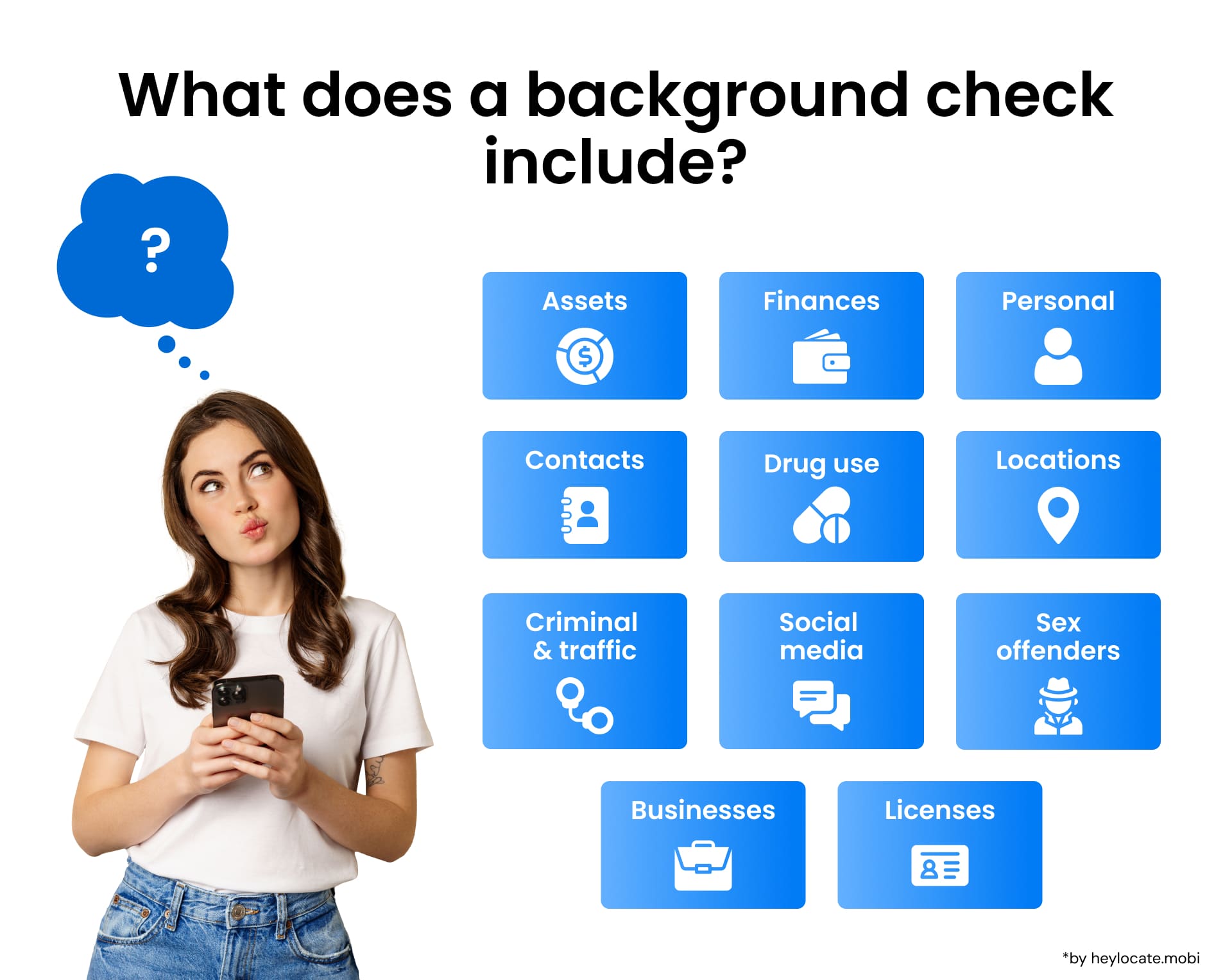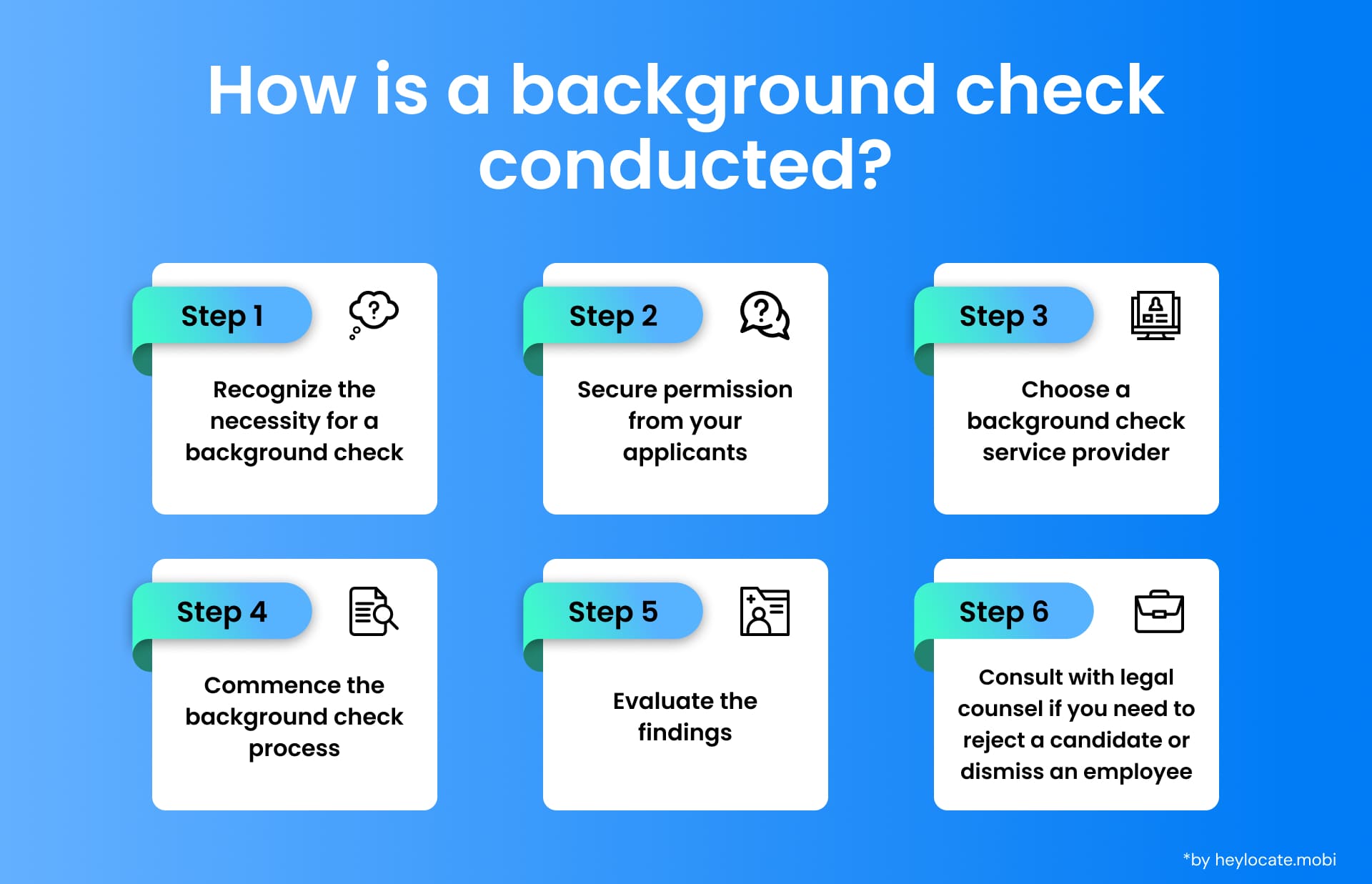Background Check
What is a Background Check?
A background check is a formal procedure employed to validate an individual’s past and acquire pertinent details regarding their history, primarily to ascertain their trustworthiness and suitability for specific positions or responsibilities. It entails a thorough investigation to uncover aspects such as criminal records, employment background, and educational qualifications, among others. This process aids organizations in making well-informed decisions when recruiting employees, leasing property, or forming partnerships. Employers can effectively manage risks and safeguard their interests by conducting background checks.

Methods of Conducting Background Checks
Background checks are typically executed through various methodologies, contingent upon the extent and requisites of the inquiry. These methodologies encompass database inquiries, personal references, interviews, and, occasionally, scrutiny of social media platforms. The depth and breadth of the investigation may vary depending on the nature of the role under consideration or the level of security mandated.
Common Varieties of Background Checks
A criminal background check includes scouring diverse criminal databases to ascertain any prior convictions or pending charges against the individual. Employers, landlords, and individuals seeking to engage in services, such as babysitting, often conduct criminal background checks to ensure the safety and security of their surroundings.
An employment background check, which focuses on an individual’s professional trajectory and performance, authentication of prior employment, job roles, responsibilities, and reasons for departure from previous positions.
An education background check is conducted to validate an individual’s academic credentials, including degrees, certifications, or diplomas from educational institutions.
Supplementary Checks
Ensuring employees undergo drug screening is particularly crucial in industries where substance use could pose significant risks, such as transportation or healthcare.
Credit checks are used to review an individual’s credit history to assess their financial integrity and dependability. They are mainly conducted for roles in financial management or positions with access to sensitive financial data.
Psychometric tests are designed to evaluate an employee’s personality traits, skills, and aptitudes, typically for leadership or customer service roles.
Gamer profile checks are performed for positions within the gaming industry, analyzing individuals’ online gaming history and reputation.
Legal and Ethical Considerations
Legal regulations governing background checks vary across jurisdictions. In the United States, the most significant are the Fair Credit Reporting Act (FCRA) guidelines. This includes obtaining the candidate’s written consent before conducting a background check, notifying them if the information is used against them, and providing a copy of the report. The candidate has the right to know what information is being collected and how it will be used.
Under Title VII of the Civil Rights Act, employers must ensure that the use of background checks does not discriminate against protected classes such as race, color, religion, sex, or national origin.
Employers must ensure the information gathered is accurate, relevant, and up-to-date. They should maintain confidentiality and safeguard the privacy of the candidate, preventing an unauthorized access to the background check information.
If the background check involves candidates from other countries, there should be adherence to data protection laws such as GDPR. Failure to comply with legal and ethical considerations when conducting background checks can result in lawsuits, fines, and damage to the organization’s reputation.

References
- “The Ultimate Guide To All Types of Background Checks”. The Justice Collaborative. Retrieved March 6, 2023.
- https://en.wikipedia.org/wiki/Background_check
- Fair Credit Reporting Act (FCRA) https://consumer.ftc.gov/articles/free-credit-reports
- Bushway, S. D., Nieubeerta, P., & Blokland, A. (February 2011). “The Predictive Value of Criminal Background Checks: Do Age and Criminal History Affect Time to Redemption?”. Criminology, 49(1), 27–60.
- Guojian, Y. (2009). “Identity Discrimination In Employment – Household Registration And Regional Origin”. In Taking Employment Discrimination Seriously: Chinese and European Perspectives (pp. 133–156). Brill.